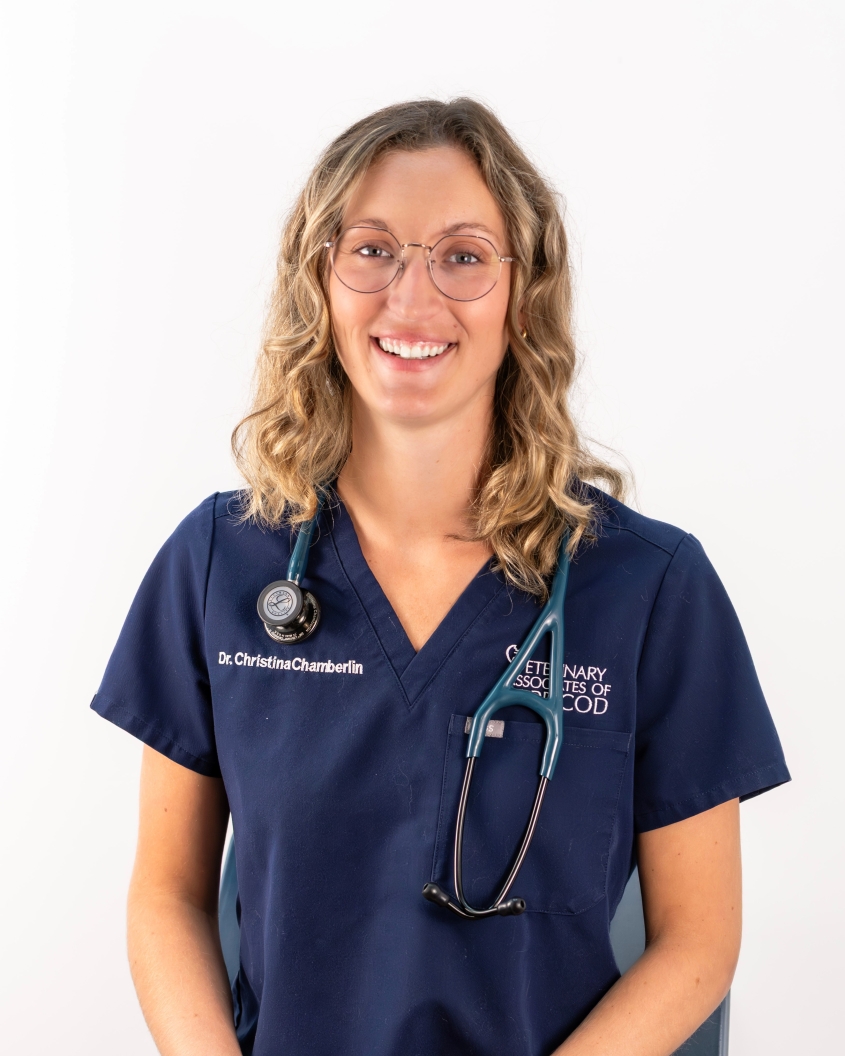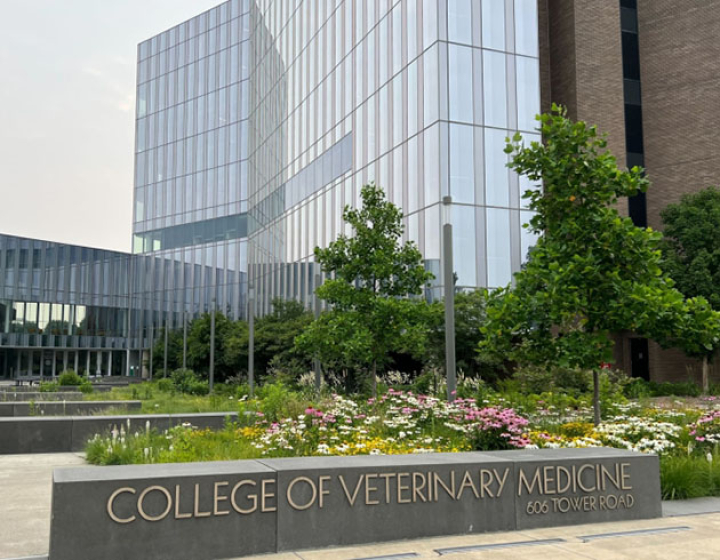CVBE alumni profile: Christina Chamberlin, D.V.M.’24
The Cornell Center for Veterinary Business and Entrepreneurship, a partnership with between the College of Veterinary Medicine and SC Johnson College of Business, promotes excellence in veterinary business and management through education, economics research, and entrepreneurship. Launched in 2019, the CVBE now offers ten elective courses for veterinary students, as well as a Certificate in Veterinary Business and Management designed to help prepare graduates for long-term career growth across diverse career pathways. In this alumni profile series, we will be talking with some recent alumni about how the training they received through the CVBE helped their career progression.
Christina Chamberlin, D.V.M.’24, associate veterinarian, Veterinary Associates of Cape Cod
Q: What drew you to the veterinary business courses offered by the CVBE?
The courses offered by the CVBE allowed me to get a broader education outside of practicing medicine in preparation for my career in veterinary medicine. I was interested in practice ownership and interested in advancing my knowledge of business. Prior to vet school, one of my mentors, who is a practice owner, said her biggest regret was not taking any business classes — I didn’t want to make the same mistake!
Q: What was your favorite course?
My favorite course was Services Marketing. In this smaller class, students were given the opportunity to dive into a creative project. In doing so, it allowed me to apply much of the knowledge acquired from other courses into a hypothetical “real life scenario,” while also learning more about service marketing itself. I enjoyed the weekly discussions that this class offered. Having a smaller class size allowed for deeper connections and conversations to apply what we were learning, which is harder to do in a lecture-style class.
Q: What aspects of your CVBE education do you use, and how do they impact your work?
In my current role as an associate veterinarian at a nine-doctor practice, I meet with the hospital director and hospital manager every other week to discuss a variety of things including hospital functions. Due to my business training with the CVBE, I have many ideas about improving certain functions. For example, we discussed and implemented changes for anesthesia protocols and pain scoring patients post-operatively. Only six months into my post-grad job, my employer asked me to give a presentation on post-operative pain-scoring to educate our technicians and technician assistants after I had suggested pain scoring during one of our bi-monthly meetings. Due to my classes with the CVBE, I was confident in bringing up these topics for discussion and my employer has been thankful and receptive to my input.
Additionally, I utilize the knowledge gained in the Medical Records and Informed Consent class daily when writing my medical records and communicating with owners. My CVBE education has increased my confidence in my new-grad role and has allowed me to become a well-rounded veterinarian.
Q: What are your career goals, and how has your CVBE education supported and prepared you for those next steps?
I hope to own a small animal practice one day. My business education has supported and prepared me for these next steps by arming me with the knowledge necessary to own and operate a practice. Without my business education, I would be hesitant to take that next step due to the immense amount of required knowledge in finances, legality, etc. that would seem overwhelming without having been prepared by the CVBE.
Q: What was your certificate capstone project focused on? What knowledge and skills did you gain?
My capstone project was focused on client satisfaction. I learned about the importance of satisfaction surveys, how to phrase questions to gain high-quality feedback, and practiced interpreting and utilizing that data for the betterment of the practice.
Q: What role do you think veterinary business courses play in preparing veterinarians for their careers?
Veterinary business courses allow veterinarians to become well-rounded, even if their goals are not to own a veterinary practice. For example, the course Medical Records and Informed Consent applies to all veterinarians, regardless of specialty or career goals. Taking this course teaches veterinarians about what legally needs to be incorporated into medical records and how to do this efficiently. It also teaches veterinarians about communication with owners and how to gain informed consent.
Another example is the Personal Finance class. This class can be applied by all veterinarians regardless of specialty or career goals. These classes create well-rounded veterinarians who will be better prepared for a life and career in veterinary medicine.
Q: What advice do you have for a prospective veterinary student?
Even if you don’t have an interest in business, take some of the business courses! These classes will help you become a well-rounded veterinarian and will benefit you even outside of your career.






